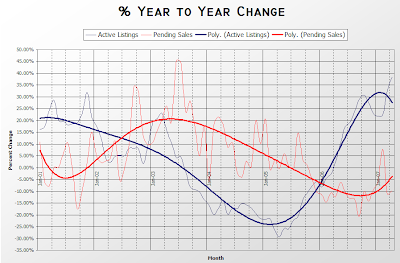Finally some semi-useful information out of Dupre + Scott. Mr. Cohen reports on the "1-19 Unit Report" just released by Dupre + Scott in this terrifying tale of skyrocketing rents and plummeting vacancies:
Rental houses get scarce, expensive
The good news for people who cannot afford to buy a house in Seattle is that it may make economic sense to rent for the moment.
The bad news? Rental houses are a lot harder to find and pricier than they were a year ago.
The typical Seattle rental house now costs $1,604 a month, up 4.6 percent from a year ago, according to data that Dupre + Scott Apartment Advisors released Monday. House rents for all of King and Snohomish counties were up 6.5 percent from a year ago.
Dupre + Scott did not release vacancy rates just for houses, but among all King County rental buildings with one to 19 units, including houses, the rate declined from 3.7 percent a year ago to 3.1 percent now. The house trend is similar to that for apartments in general, according to Dupre + Scott.
It should be noted that even this report excludes homes or condos rented out by individuals. According to the Dupre + Scott website, the 1-19 Unit Report is derived from a survey of "apartment owners, professional property managers, and on-site property managers." Given the logistical complexity of such a task, you can't really blame them for not surveying individual owners, but it's important to keep in mind what this data is and is not telling us.
Dupre + Scott's April apartment report asserts that people would make more money renting, and investing the money they save elsewhere, than paying current prices to buy a home.
"There are a lot of reasons to own a home," Dupre + Scott co-owner Mike Scott said. "From a purely financial perspective I'd say no, it doesn't make sense. But if home prices go up 10 or 15 percent in the next year, I'll have to eat those words."
That makes about as much sense as the following: "There are a lot of reasons to visit a casino. From a purely financial perspective I'd say no, it doesn't make sense. But if you make 10 to 15 percent profit on your next visit, I'll have to eat those words."
No words will in fact need to be eaten, because even if home prices go up another 10 to 15 percent next year, it still doesn't make financial sense to buy a home right now. To put it another way... Just because a reckless decision paid off in the short term doesn't mean that it wasn't reckless, it just means that you were lucky.
Bob Melvey, assistant manager of Windermere Real Estate's Ballard office, said renting and investing the savings might pay off "if someone is very, very disciplined and they truly do put that difference in the stock market and they do a good job of managing their stock portfolio."
But most people would end up spending the savings on other things, Melvey said. "Owning your own home is, to a degree, a forced savings plan."
A "forced savings plan" where 80% of the money you "deposit" in the first five years simply vanishes (the interest portion of the payment), and from which you can only withdraw money by paying a 6-9% fee (not on the amount you have "saved" mind you, but on the total sale price) and relocating. Wait, that doesn't sound anything like a savings plan.
To give these figures a bit of perspective, let's say that the average single-family home at
$1,583 (King/Sno) is comparable to the median home, which sold for $454,950 last month (King), resulting in an approximate PITI payment of $3,400. We will assume the homebuyer had 20% (almost $100,000) to put down, and we will ignore maintenance, HOA, utilities, and tax deductions in order to keep this simple. Right off the bat, the renter's monthly payment just 46.6% of the buyer.
It would take
13 years of 6.5% rent hikes before the renter's payment exceeded the homeowner's. Of course, during that time, the renter's $90,000 in liquid investments will likely have doubled or tripled, and that doesn't even consider that they're adding the monthly savings to the investment. If they bank the difference, their $90,000 could quite easily become $500-$600k. Also, if you think that rents will increase steadily at 6.5% per year for the next 13 years, I don't think you have a very good grasp of history.
Suffice it to say that despite the scary language in the headline of Mr. Cohen's latest volley, renting still beats buying in the Seattle area
hands down (financially speaking).
(
Aubrey Cohen, Seattle P-I, 04.30.2007)



